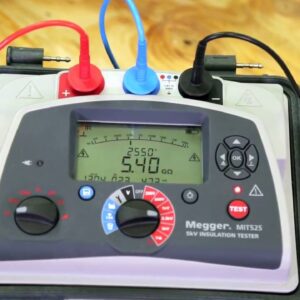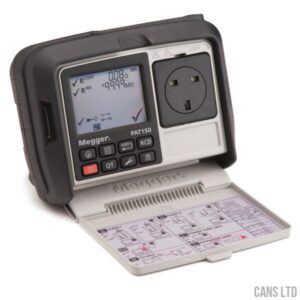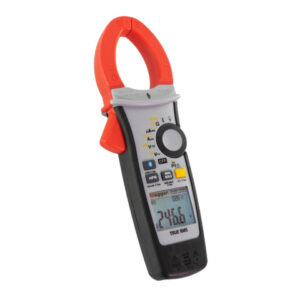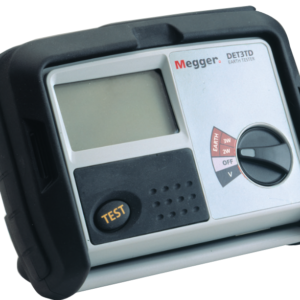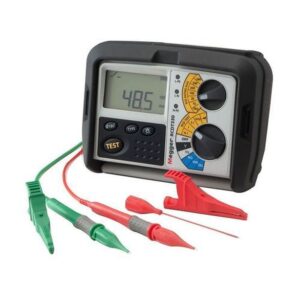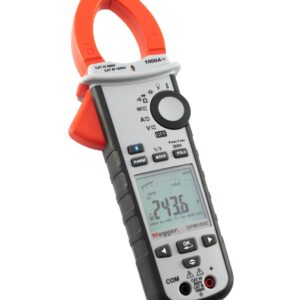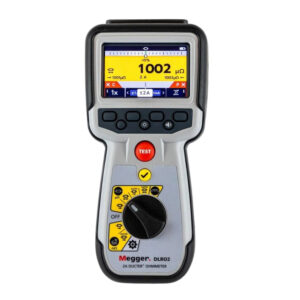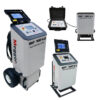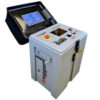EZ-THUMP™ 12 kV, Model V3
Portable Cable Fault Location System for Medium Voltage Distribution Power Cables
The EZ-THUMP 12 kV model is a compact and lightweight, battery and AC line operated, portable cable fault location system. It is designed for quick, effective, accurate and safe fault locating operations to greatly reduce system customer outage minutes.
Due to its portable and robust enclosure, it is ideally suited for all typical fault locating operations on MV cables. The 12 kV model is typically used as part of a “satellite”
fault locating concept for remote areas that may have less frequent faults, when simple operation, light weight and economics are important, or for hard to access inner-city
locations.
The unit typically requires no adjustments and is operated via the unique and easy to follow E-TRAY GUI and a rotary control knob. It guides the user automatically through the entire fault locating process, starting with a Hipot Test and followed by both a Prelocation and Pinpointing step. During this 3 step process the test data will be stored and used in
difficult fault locating situations to interpret the result and provide advice to the user of what to do next.
FEATURES:
■ TDR method to prelocate very low resistance cable faults, either phase to phase or phase to neutral, or by pair comparison
■ Arc Reflection Method (ARM®) prelocation of high resistance flashover faults, featuring MULTISHOT Technology for optimum fault capture
■ Single stage 500 Joule surge generator for pinpointing of high resistive faults up to 12kV
■ DC testing for breakdown detection.
■ Insulation resistance measurement.
■ Sheath testing and sheath fault locating.
APPLICATIONS
HV Testing (proof/insulation testing, sheath testing)
Used to test the dielectric strength of the cable or sheath insulation and, if the test fails, to determine the breakdown voltage. For this purpose a test voltage up to 12 kV (sheath test typically limited to 5kV) is applied to the cable under test indicating the resistance value.
Fault prelocation
After identifying the type of fault as high resistance/ flashover, prelocation of any concentric neutral type MV cable can be determined using ARM. In ARM, the arc of the flashover creates a temporary “jumper ” to the neutral ground. During this condition, a Multishot TDR measurementis made into what is basically a short circuit fault providing a negative reflection at the location of the fault.
Faults identified as very low resistance / non-flashover in shielded cables can be prelocated using the TDR method.

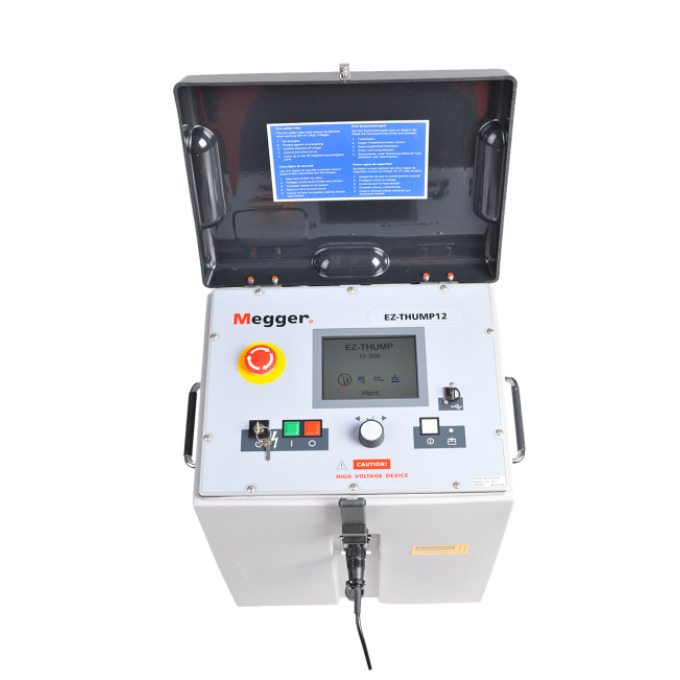
 megger-ez-thump-12
megger-ez-thump-12
